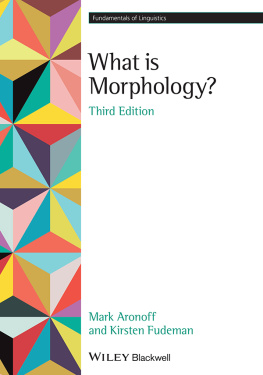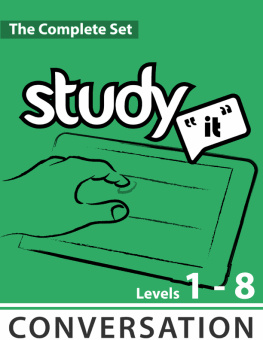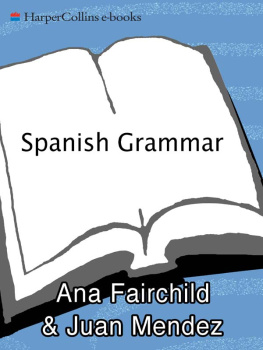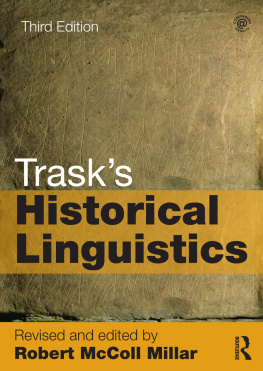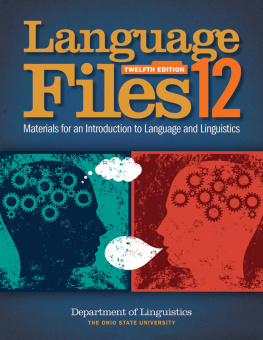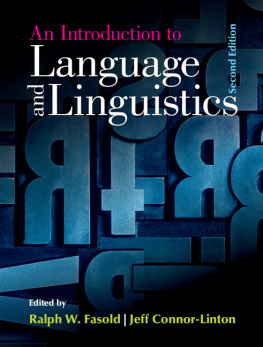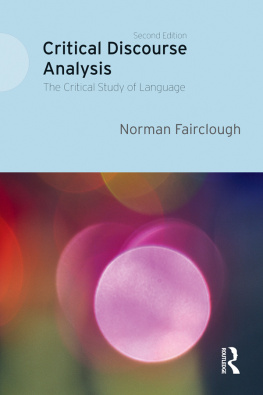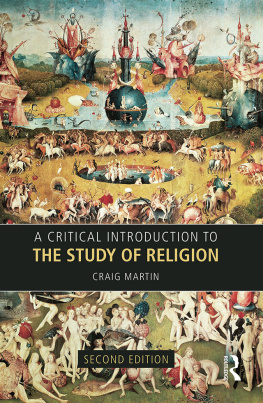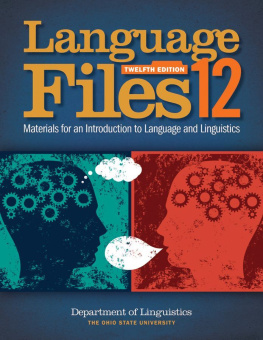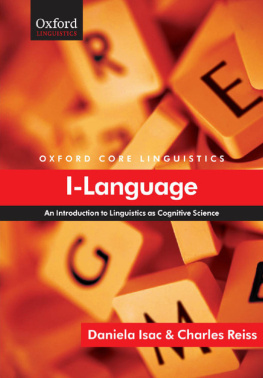Contents
The Study of Language
This best-selling textbook provides an engaging and user-friendly introduction to the study of language. Assuming no prior knowledge of the subject, Yule presents information in bite-sized sections, clearly explaining the major concepts in linguistics through all the key elements of language. This sixth edition has been revised and updated throughout, with substantial changes to the chapters on phonetics, grammar and syntax, and eighty new study questions. To increase student engagement and to foster problem-solving and critical-thinking skills, the book includes twenty new tasks. An expanded and revised online study guide provides students with further resources, including answers and tutorials for all tasks, while encouraging lively and proactive learning. This is the most fundamental and easy-to-use introduction to the study of language.
GEORGE YULE has taught linguistics at the University of Edinburgh, the University of Hawaii, the University of Minnesota and Louisiana State University.
A genuinely introductory linguistics text, well suited for undergraduates who have little prior experience thinking descriptively about language. Yules crisp and thought-provoking presentation of key issues works well for a wide range of students.
Elise Morse-Gagne, Tougaloo College
The Study of Language is one of the most accessible and entertaining introductions to linguistics available. Newly updated with a wealth of material for practice and discussion, it will continue to inspire new generations of students.
Stephen Matthews, University of Hong Kong
Its strength is in providing a general survey of mainstream linguistics in palatable, easily manageable and logically organized chunks. The chapter divisions allow for considerable flexibility, which has proved particularly important after recently restructuring our courses and reorganizing the order in which to cover the topics.
Nigel Musk, University of Linkping
Perfect for the beginners level introductory linguistics course, both in style and content.
Hugh Buckingham, Professor of Linguistics, Louisiana State University
Very clear and easy to read for beginners; user-friendly and non-threatening ; chapters are in absorbable bite-size chunks.
Jean Aitchison, Professor of Language and Communication, University of Oxford
An impressive breadth of coverage clear presentation, lucid style and accessibility a solid foundation for further study in linguistics as well as being a pleasure to read in its own right.
Alan Smith, Web Journal of Modern Language Linguistics
Comprehensive, concise and compelling, this updated and highly accessible textbook is the obvious choice for the beginner language student.
Torill Hestetret, University of Bergen
This textbook is an excellent overview of the central topics in linguistics and how linguists study language.
Daniel W. Hieber, Rosetta Stone, eLanguage.net
provides a clear and concise introduction to linguistics suitable for beginners.
Dr. Jeffrey Gil, Flinders University, Adelaide, Australia
The Study of Language
Sixth Edition
George Yule

University Printing House, Cambridge CB2 8BS, United Kingdom
Cambridge University Press is part of the University of Cambridge.
It furthers the Universitys mission by disseminating knowledge in the pursuit of education, learning and research at the highest international levels of excellence.
www.cambridge.org
Information on this title: www.cambridge.org/9781316606759
First and second editions Cambridge University Press 1985, 1996
Third, fourth and fifth editions George Yule 2006, 2010, 2014
Sixth edition George Yule 2017
This publication is in copyright. Subject to statutory exception and to the provisions of relevant collective licensing agreements, no reproduction of any part may take place without the written permission of Cambridge University Press.
First published 1985
Second edition 1996
Third edition 2006
Fourth edition 2010
Fifth edition 2014
Sixth edition 2017
Printed in the United Kingdom by Clays, St Ives plc
A catalogue record for this publication is available from the British Library
Library of Congress Cataloguing in Publication data
Yule, George, 1947 author.
The study of language / George Yule.
Sixth edition. | Cambridge, UK : Cambridge University Press,
2016. | Previous ed.: 2014.
LCCN 2016010371 | ISBN 9781107152991 (hardback)
LCSH: Language and languages. | Linguistics.
LCC P107 .Y85 2016 | DDC 401dc23
LC record available at https://lccn.loc.gov/2016010371
ISBN 978-1-107-15299-1 Hardback
ISBN 978-1-316-60675-9 Paperback
Additional resources for this publication at www.cambridge.org/yule6
Cambridge University Press has no responsibility for the persistence or accuracy of URLs for external or third-party internet websites referred to in this publication, and does not guarantee that any content on such websites is, or will remain, accurate or appropriate.
Every effort has been made to secure necessary permissions to reproduce copyright material in this work, though in some cases it has proved impossible to trace copyright holders. If any omissions are brought to our notice, we will be happy to include appropriate acknowledgements on reprinting, or in any subsequent edition.
Preface
In This New Edition
Thanks to a comprehensive survey of instructors familiar with earlier editions, I received a lot of good advice and suggestions for improvements to this new edition. As a result, a number of revisions have been made to the internal organization of all chapters, with more than thirty new figures and tables. There are also substantial revisions in (Syntax), plus additional material on adjacency pairs, brain development, coherence, complementary distribution, diphthongs, emotional deixis, human breathing while speaking, insertion sequences, language typology, morpheme acquisition, pragmatic markers, referential meaning, slips of the tongue, stone tool use, subjects, objects and word order. I hope these revisions and additions will make the book more informative, easier to read and overall more user-friendly.
In addition, there are eighty new study questions and twenty new tasks. The majority of the tasks are data-based and designed to foster analytic, problem-solving and critical-thinking skills. There are new examples from languages as diverse as Bislama, Cree, Lolovoli, Japanese, Malagasy, Manambu and Rotokas. Additional topics explored in the study of English include adjacency pairs, American versus British spelling, auxiliary movement, childrens slips, English as a lingua franca, genitives, lenition, long and short vowels, mateship, morphophonology, prepositions and semantic roles, and the trochaic stress pattern. An expanded and revised Study Guide providing answers and tutorials for all the tasks can be found on the books website www.cambridge.org/yule6.
To the Student
In The Study of Language , I have tried to present a comprehensive survey of what is known about language and also of the methods used by linguists in arriving at that knowledge. There continue to be interesting developments in the study of language, but it is still the case that any mature speaker of a language has a more comprehensive unconscious knowledge of how language works than any linguist has yet been able to describe. Consequently, as you read each of the following chapters, take a critical view of the effectiveness of the descriptions, the analyses and the generalizations by measuring them against your own intuitions about how your language works. By the end of the book, you should feel that you do know quite a lot about both the internal structure of language (its form) and the varied uses of language in human life (its function), and also that you are ready to ask more of the kinds of questions that professional linguists ask when they conduct their research.



